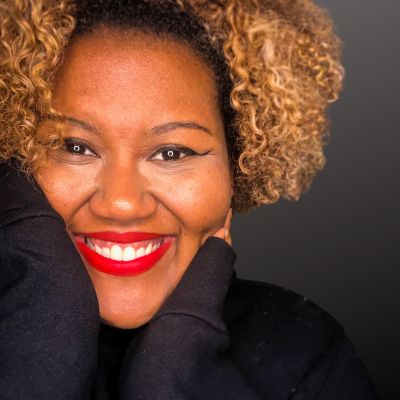
Coty Raven Morris
Music Education and Social Justice
Portland State University
Portland, Oregon
As the Hinckley Assistant Professor of Choir, Music Education and Social Justice at Portland State University in Oregon, Coty Raven Morris says that she “has the privilege of teaching and working with a multitude of ensembles and future music educators to prepare them for the field through the lens of social justice.”
Her position was designed to ensure that concepts of equity in the classroom are interwoven into the pedagogy. Morris wants to practice what music education could look like outside the traditional classroom. “One of the main objectives of my position is designing a houseless choir for our neighbors on the street in the Portland area,” she explains. “Throughout the past three years, we have test piloted a series of connections with different organizations to see what helped the community best, and what allowed our students at PSU to teach and pour back into the city.”
This collaboration between choirs in the area and the university’s community choir concerts will continue. And in 2026, a new partnership with Path Home, a community for houseless families, will begin. “Portland State students under my supervision will serve as teachers and leaders for youth and parent ensembles in a community that helps houseless families with resources and finding permanent homes,” Morris says proudly.
Connecting people is the underlying theme of many of Morris’ endeavors. For example, Being Human Together, started as a community rooted in music educators striving to normalize difficult topics they encounter. Through the practice of conversation, people discuss traditionally taboo subjects like mental health, systemic oppression, diversity and inclusivity. “Everyone wants to talk about heavy stuff, but what if we also practice community and being human with each other?” Morris asks rhetorically. “What if we consider the perspectives of other people and practice sitting with thoughts as our own mindset and theories evolve? Growth in a community does not only come with action, but with patience for evolution in ourselves and others.”
Morris emphasizes this same message of well-being and social-emotional learning (SEL) at clinics she presents. “SEL is something that is interwoven throughout music lessons. When educators prioritize those same elements for themselves, it’s easier to notice the needs of the students in front of us,” she explains. “Whether it’s healing-centered or trauma-informed, these practices ask that educators be flexible with the destination of their plans so that we can care for students along the journey. The key to doing this right involves utilizing the materials and the repertoire as agents of learning and character development.”
Morris started a vlog called “Car Thoughts with Coty” as a fun way to process some of the silly things that happened in her classroom. In her 15- to 60-second clips, she would broadly talk out scenarios that she heard from her students — she never shared student names —such as peer-to-peer conflicts, romantic relationships, academic struggles and successes. “I would have these tiny social media therapy sessions where I shared my thoughts of how to handle different situations,” she said with a smile. “To my surprise, not only would my students grow from watching these videos, but my colleagues at other schools would use them for discussion topics and SEL moments in their own classes!”
She realized that people were in need of talking out problems, so she is evolving her vlog to a new platform called “Coty’s Classroom.” “I’m partnering with Music Workshop to provide teaching videos for free on social media and other platforms that will take the same format as ‘Car Thoughts with Coty’ to make these conversations more accessible,” she says.








